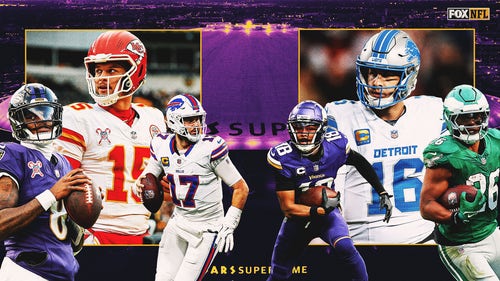
No CBA means no growth for rookies
March usually brings a positive vibe around the NFL. It marks the beginning of the new year for the league, and teams start their offseason programs.
Not this time around, folks. With the expiration of the collective bargaining agreement and the lockout, players can’t train with their respective teams. And the longer labor strife continues, the harder it will be for coaching staffs to get players ready for the 2011 season.
Teams continue to say they are prepared for the event of a long lockout, but how can they develop players if they can’t talk to them?
Trust is obviously a big factor. Todd Haley, heading into his third season as coach of the Kansas City Chiefs, says he tried to get the message across to his players.
“One of the points I made when the season ended was this third offseason, there can be no letup. We've got to build on that second offseason and move into our third,” he said this week at the owners meetings.
“Players have to work out on their own,” he added. “And with players training on their own, teams will not be able to supervise their physical activity. But that’s not the only element (of) getting their teams ready for this coming season that is absent.”
Keeping players in shape this time of year is one thing, but developing younger players without the ability to talk to them is difficult at best.
Lockout hurts these players most
Without the ability to talk to them, coaches won’t be able to develop their younger players.
The second and third NFL seasons are generally viewed as the developmental years, especially with quarterbacks. Cleveland Browns second-year QB Colt McCoy is expected to be a full-time starter next season, but McCoy will have to learn a completely different offensive scheme.
“It's going to challenge our skills as teachers, that's for sure,” Browns head coach Pat Shurmur said about possibly having a shorter time period to teach McCoy the West Coast offense. “I'm really confident our coaches can get it taught in the time allotted. I'm not spending time worrying about it. I think the important thing is to maximize our time when we get up and running. They're proven systems. We'll get it done.”
Teams won’t be able to talk to their rookies once they’re drafted, and Commissioner Roger Goodell said getting them a playbook or otherwise communicating with them will be prohibited. Even giving them an idea of what type of scheme they’ll be playing in will be difficult.
“All of us will be nervous if you have a draft and this isn’t resolved yet,” Green Bay Packers coach Mike McCarthy. “Now, your scheduling is shifting into another gear. To me, you can shake it any way that you want. You can talk about nine weeks, 15 weeks, whatever, you still have a job to do and work to get done. That’s not going to change.
"How you get that done is based on your time management, and the league controls that, which is fine, but it’s going this way. That’s always a concern, that you’ve got less time to do the amount of work to get ready for a season.”
But how much could a player really be expected to develop if he doesn't have a playbook and he’s not getting on-the-field coaching?
“Well, you are going to potentially lose time with these guys. It's tough,” Arizona Cardinals coach Ken Whisenhunt said. “...The minicamp and OTA (organized team activities) period that you get with these players is critical, not so much for getting them prepared for the season, but getting them prepared for training camp. Because that is where you make your progress.
"The way we do it is when we put our installation in minicamp and our OTAs, it's all geared toward (this): When they come into training camp, they are able to compete on a level where you can really see what kind of players they are. That can possibly be all condensed. You have to be aware of that.
"It is going to make the preparation period for them a lot shorter. It's going to make the judgment period for us a lot more difficult. But everybody is going to be facing that criteria.”
Whisenhunt knows it’s hard enough for a rookie to try to learn a scheme that is typically much different than the one he learned in college.
“When they come into minicamp, their heads are always spinning because they are trying to learn a new system and new techniques, yet they are trying to compete against NFL-caliber players, which is very difficult.”
Lockout hurts these teams most
There have been 23 coordinator changes this offseason. And there are new coaching staffs with Carolina, Cleveland, Dallas, Denver, Minnesota, Oakland, San Francisco and Tennessee.
With new staffs in place, there are new offensive and defensive schemes to teach, but because of the lockout, there is less time for the players to learn them with supervision.
The Browns are the only team changing schemes on both sides of the ball this offseason, so they have a major challenge on their hands. They will go from a 3-4 to a 4-3 scheme on defense, which not only will force them to draft and sign players to fit the scheme, but also will require other players to line up differently or move to different positions.
The bottom line is teams with major coaching changes are going to be at a big disadvantage the longer labor uncertainty lingers on — there’s just no way around it.









